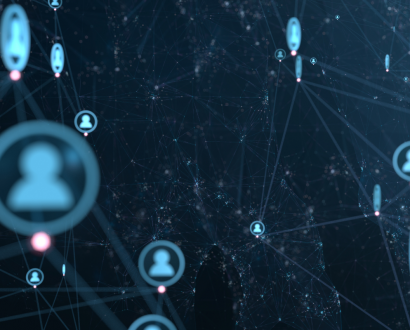Why adaptive AI systems are key to unlocking business flexibility

Long gone are the days when AI was a futuristic concept that few companies had seriously considered embracing. According to a NewVantage Partners report, more than 91 percent of leading businesses say they have ongoing investments in AI.
Corporate leaders also view AI as an essential tool, with 86 percent of CEOs reporting that AI is a mainstream technology in their organization.
While traditional AI solutions continue to become a more commonplace tool used by enterprises, adaptive AI is rapidly turning into the next major innovation in the AI space.
Unlike conventional AI systems that are not able to learn from interacting with new data they process, adaptive AI repeatedly learns from the data it encounters to improve itself.
"Adaptive AI makes use of paradigms, such as continuous learning, to enable AI systems to be more efficient, scalable and sustainable in the long-term," explains Jon Howells, Director of AI and advanced analytics consultancy Qualifai.
"Whereas traditional AI systems are trained on a fixed, historical data set, adaptive AI is continuously updated on newer data to maintain accuracy in the face of a changing environment."
Next generation

During times of relatively little volatility, traditional AI tools are usually effective. But recent major events, such as COVID-19 and Brexit, have illustrated the challenges conventional AI solutions experience when faced with situations not accounted for in their training sets.
For example, Howells mentions an AI model that was developed to detect vehicle traffic patterns before the pandemic but could not adapt to the drastic shift in traffic during lockdowns. If adaptive AI was used, however, the model would be able to adapt without being retrained on new data.
"We would never accept a piece of software where we had to rip the whole thing down and rebuild it every 18 months or so, but we have thought of AI systems in this way, historically." – Kat James
"Executives often assume that traditional AI systems are set up to continuously learn on new data, however, in many cases, machine learning models are trained on huge but fixed data sets at a specific point in time," Howells adds.
Compared to traditional AI systems, embracing adaptive AI can bring many benefits to businesses as a direct result of the continuous learning approach.
Unforeseen events are, by their very nature, difficult to predict and can leave companies scrambling to recover. In addition, the uncertain business environment makes feeding historic data into AI to forecast future outcomes increasingly ineffective.
Kat James is Technical Director, Retail & Consumer at technology firm Faculty, which provides software, consulting and services related to AI. She reveals that a major benefit of adaptive AI to businesses is the ability of AI models to remain consistent, or even improve, with minimal manual input.
"Adaptive AI can allow businesses to think of AI in the same way they are used to thinking about software. We would never accept a piece of software where we had to rip the whole thing down and rebuild it every 18 months or so, but we have thought of AI systems in this way, historically," she points out.
Broad appeal
In fast-moving industries, where both consumer behaviors and trends shift at a moment’s notice, the ability of adaptive AI tools to immediately adapt to real-world changes can provide a clear competitive edge. Retail and ecommerce are perhaps the sectors where adaptive AI will make the most impact and further personalize product recommendations.
"These ‘cold-start problems’ are extremely important in businesses with rapidly growing or changing customer bases and product portfolios, and are challenging for traditional machine learning systems that require lots of historical training data." – Josh Muncke
Every single customer action and browsing behavior can be fed into adaptive AI to uncover the most relevant and tailored recommendation. When launching a new product or marketing to new customers, the rapid learning of adaptive AI is essential.
"These ‘cold-start problems’ are extremely important in businesses with rapidly growing or changing customer bases and product portfolios, and are challenging for traditional machine learning systems that require lots of historical training data," says Josh Muncke, Director, Retail & Consumer at Faculty.
Firms in industries as diverse as finance, manufacturing and even video games stand to gain from incorporating adaptive AI into their operations.
For example, product defects can be more easily identified through an adaptive AI-enabled process, and potential cases of fraud will be more quickly discovered in financial organizations thanks to embracing adaptive AI.
Looking ahead
It’s not difficult to see the attraction of adaptive AI to forward-thinking organizations, with this innovation enabling more to be achieved with less human involvement.
The next step on the AI journey for businesses that want to thrive and stay flexible in an uncertain future is likely to involve adaptive AI solutions. Customers, too, will benefit from products and services that better fulfill their needs and meet increasing expectations.
Moving forward, Muncke believes that research in large language models is one of the most promising areas being developed in the AI ecosystem.
"These systems are capable of generating text and have shown to be very powerful," he says. "It is expected that these models will be able to write code in the future when given a simple instruction, and AI could be revolutionized by this technology."